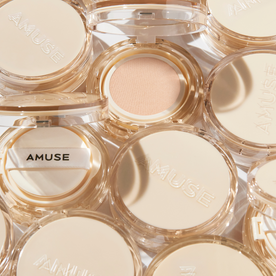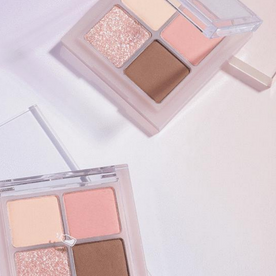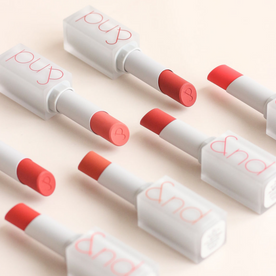Come prendersi cura della pelle sensibile
Può essere frustrante quando la tua pelle sembra reagire a tutto. Diventa rossa, pruriginosa e infiammata . Non sai mai cosa la farà scattare e provare nuovi prodotti può essere un calvario. O forse la tua pelle è normalmente abbastanza buona, ma all'improvviso sembra non riuscire a tollerare gli ingredienti che prima tollerava.
I consumatori di prodotti K-beauty premono per ingredienti più delicati e naturali. I marchi di prodotti per la cura della pelle hanno risposto riducendo o eliminando gli ingredienti irritanti e sviluppando prodotti specifici per pelli sensibili. Ci sono marchi con intere linee dedicate alla cura della pelle delicata e calmante.
Quindi mantenete la calma e vediamo come lenire la vostra pelle sensibile .
Sensibile o sensibilizzato?
Prima di presumere di avere un tipo di pelle sensibile, potresti voler accertarti che la tua pelle non sia semplicemente sensibilizzata . La pelle sensibilizzata sta attraversando un periodo di irritazione, o ha una barriera di idratazione danneggiata ed è particolarmente reattiva. Ciò non significa che la tua pelle sarà sempre sensibile. Tuttavia, per ripristinare la salute della tua barriera cutanea , dovrai scoprire cosa sta causando la rottura e ridurla o eliminarla.
Alcune cause della pelle sensibilizzata sono: fumo e/o altre forme di inquinamento, danni ambientali, stress, danni alla barriera cutanea (causati da ingredienti irritanti) o esfoliazione eccessiva.
Non sai cosa scatena la sensibilità della tua pelle? Ecco alcuni consigli per ridurre l'irritazione.
Indossare la protezione solare
L'eccessiva esposizione ai raggi UV può provocare la formazione di radicali liberi dannosi nella pelle.
Pulire correttamente
Effettua una doppia detersione con detergenti delicati e dal pH bilanciato per assicurarti di liberare la pelle dagli agenti inquinanti.
Aumenta l'idratazione
La pelle secca e screpolata non è protetta bene, quindi usate prodotti idratanti.
Ridurre gli ingredienti irritanti
Controlla i tuoi prodotti attuali per verificare la presenza di possibili sostanze irritanti; se necessario, esegui un patch test.
Salute generale
Non dormire a sufficienza o mangiare male possono causare stress, che riduce le funzioni naturali della pelle.
Esfoliare meno
Esfoliare troppo può danneggiare la barriera cutanea, quindi prova a esfoliare 2 o 3 volte a settimana invece che ogni giorno. Assicurati di controllare tutti i prodotti nella tua linea di prodotti per la cura della pelle: alcuni prodotti non sono tecnicamente esfolianti ma potrebbero comunque contenere ingredienti esfolianti, come gli acidi.
Tipo di pelle sensibile
Se hai davvero un tipo di pelle sensibile, la tua pelle irritata è probabilmente una predisposizione e, sfortunatamente, genetica. Le persone che hanno questo tipo di pelle possono anche avere altre condizioni della pelle come psoriasi, eczema o rosacea. Queste sono tutte manifestazioni fisiche comuni della pelle sensibile.
Ecco alcuni altri segnali che potrebbero indicare che hai la pelle sensibile:
- Arrossamento
- Eruzioni cutanee o protuberanze
- Sensazioni di bruciore o pizzicore quando si utilizzano alcuni prodotti
- Zone secche
- Prurito
- Crepe o desquamazioni
- Eruzioni cutanee scatenate da determinati prodotti
Per reazioni gravi, dovresti consultare un dermatologo. Anche alcune cose come intolleranze alimentari e allergie possono causare irritazioni cutanee, quindi dovresti consultare un esperto.
Ci sono alcune cose generali che puoi fare per migliorare le condizioni della tua pelle. Con la pelle sensibile è importante ridurre al minimo gli irritanti e aumentare la salute della barriera cutanea.
Irritanti comuni
È impossibile sapere con certezza cosa causa una reazione a meno che non la si provi personalmente, ma ci sono alcuni ingredienti che molte persone trovano irritanti. Questo non significa che tutti lo saranno. Tuttavia, se sai che la tua pelle è reattiva, uno o più di questi potrebbero essere i colpevoli:
Fragranza
Le fragranze artificiali possono contenere decine di elementi diversi che non hanno bisogno di essere elencati. Se stai evitando le fragranze, i prodotti elencati come "senza profumo" sono migliori di quelli etichettati come "senza profumo".
Parabeni
Si tratta di un tipo di conservante che può causare problemi ad alcune persone.
Solfati
Si tratta di agenti che causano la formazione di schiuma o schiuma nelle soluzioni. Il sodio laureth solfato o il sodio laurel solfato possono rimuovere gli oli naturali dalla pelle.
Alcuni estratti botanici o oli essenziali
Gli ingredienti naturali possono comunque irritare la pelle. È noto che gli oli di mentolo, menta piperita, bergamotto e agrumi causano problemi ad alcune persone.
Ingredienti abrasivi
Gli esfolianti con gusci o noccioli frantumati possono causare piccole lacerazioni o tagli nella pelle, indebolendo la sua capacità di trattenere l'idratazione e causando infiammazione. Gli scrub fisici dovrebbero contenere particelle dissolventi o particelle senza bordi taglienti.
Alcol
L'alcol può essere utilizzato per migliorare la consistenza della cura della pelle, come conservante o per aiutare una formula ad assorbirsi meglio. Tuttavia, può seccare e causare irritazioni.
Paraffine liquide o olio minerale
Questi ricoprono la pelle con uno strato di olio che aiuta a trattenere l'idratazione, ma possono anche ostruire i pori e causare sfoghi cutanei.
Non c'è un modo per sapere esattamente cosa sta irritando la tua pelle, a meno che tu non testi i tuoi prodotti. Se la tua pelle è particolarmente reattiva, potresti voler evitare gli irritanti in generale.
È anche importante fare un patch test quando si prova un nuovo prodotto. Prova un po' di prodotto su una piccola zona di pelle e vedi se provoca qualche tipo di irritazione nei giorni successivi. Se è trasparente, quel prodotto dovrebbe essere utilizzabile.
Cosa cercare nei prodotti
Ora che sappiamo cosa evitare, quali sono alcune cose a cui dovremmo fare attenzione quando scegliamo prodotti per pelli sensibili? Diamo un'occhiata:
Meno ingredienti
Un elenco di ingredienti breve significa che è meno probabile che una formula contenga sostanze irritanti. Se la tua pelle reagisce, sarà molto più facile identificare il colpevole.
Formule a pH bilanciato
È molto importante mantenere sana la barriera cutanea se hai la pelle sensibile (e anche se non ce l'hai). La barriera è la tua prima difesa contro irritanti e batteri e aiuta a mantenere regolati gli oli e l'idratazione della pelle. Un modo per mantenerla sana è usare un prodotto con pH bilanciato. Mantenendo la pelle leggermente acida (come dovrebbe essere), la manterrai in ottima forma.
Concentrazioni più basse di principi attivi
Amiamo la nostra vitamina C e i nostri esfolianti chimici. Tuttavia, gli ingredienti attivi possono essere un problema importante se la tua pelle è sensibile. Per ottenere i benefici degli attivi senza irritazioni, inizia con una concentrazione più bassa. Man mano che la tua pelle sviluppa tolleranza, potresti essere in grado di aumentare gradualmente la concentrazione.
Esfolianti
Hai difficoltà a trovare un esfoliante che funzioni? Invece di AHA o BHA, prova un prodotto con PHA. I PHA sono gli acidi più delicati e delicati sulla pelle. Se i conservanti sono un problema per te, prova un esfoliante in polvere o un detergente. Poiché sono una soluzione secca, tendono ad avere meno conservanti rispetto ai liquidi. Per un'esfoliazione davvero delicata, usa un prodotto con papaina (estratto di papaya) o tampona delicatamente la pelle con una spugna di konjac.
Ingredienti calmanti
Ci sono molti ingredienti lenitivi e antinfiammatori che possono calmare il rossore e la pelle irritata. Funzionano per la pelle sensibile o sensibilizzata. La centella è curativa e antinfiammatoria, così come la bava di lumaca. Anche gli estratti botanici di calendula, camomilla e linfa di betulla o bambù sono noti per essere lenitivi. L'estratto di tè verde è un ingrediente comunemente usato, ricco di antiossidanti e calmante. Per rafforzare la barriera cutanea e mantenere l'idratazione, completa la tua routine con una crema contenente ceramidi.
I marchi di prodotti per la cura della pelle stanno diventando sempre più consapevoli della necessità di prodotti per pelli sensibili e stanno offrendo più opzioni. Versioni non profumate di prodotti cult, prodotti con ingredienti limitati, formule senza ingredienti potenzialmente problematici e linee progettate per calmare e lenire sono disponibili per coloro che ne hanno bisogno.
















































